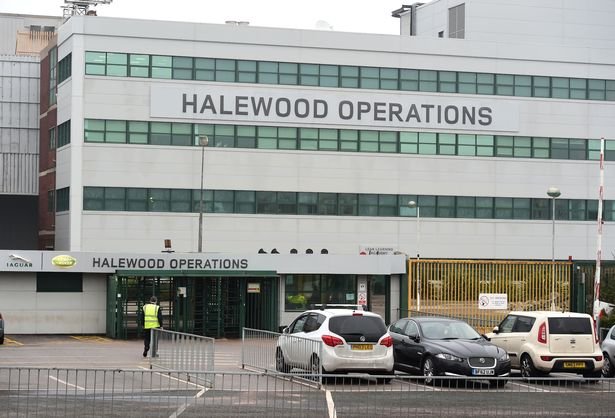Land Rover to build Evoque, Velar, Discovery Sport EVs at Halewood

The next-generation Range Rover Evoque, Range Rover Velar and Land Rover Discovery Sport models will be exclusively offered as electric cars.
JLR (as Jaguar Land Rover is now known from today) has confirmed its Halewood, Merseyside plant will switch to making exclusively electric models from 2025 - and will build each of those three cars.
The cars will be built on a new architecture called EMA (Electric Modular Architecture). This had previously been planned to be hybrid as well as electric but will now be electric-only.
New JLR CEO Adrian Mardell said this was in response to the way the market had shifted so dramatically towards electric that it made sense for the brand’s future mid-size SUV models to do the same.
Mardell confirmed that “three vehicles, maybe four” would be built on EMA, which includes the next Evoque and Discovery Sport. The first model to come from Halewood will be “from the Range Rover family”, according to a JLR statement, and Autocar understands that model is set not to be the Evoque but the Velar, which will switch to EMA and the Halewood plant for its second generation.
The identity of the fourth model is not yet known, but it opens up the tantalising possibility of a smaller electric Defender, as well as an additional model in the Discovery range.
The new models would use batteries sourced in the longer term from a new European Tata gigafactory, but until then they would be from an external supply contract JLR has already secured.
Autocar reported last year that JLR had taken the first steps to convert Halewood to build electric vehicles, securing the factory’s future as the company begins rolling out low- and zero-emission vehicles.
As of September, the company had begun the tendering process to upgrade the factory to build cars on the new ‘native BEV’ Electrified Modular Architecture (EMA), a source close to the process told Autocar.
JLR has previously confirmed the platform for the Halewood plant, one of its three vehicle assembly facilities in the UK. However, the latest development will come as good news for the facility’s 3700 employees in a period of high uncertainty.
The extended shutdown period to convert the plant will happen in 2024, the source told Autocar. JLR has said cars on its EMA platform will arrive in the same year.
Halewood’s confirmed role in building electric cars will ensure its future is secure well into the medium term. The factory was opened in 1963 by Ford, which retains part of the site for building gearboxes and will invest £380 million repurposing it as an electric drivetrain factory by 2024.
Last summer, JLR also submitted planning requests to extend Halewood’s body shop “to increase its production capacity for new model lines”, according to documents lodged with the local Knowsley council. The new two-storey building would expand the additional body shop, where the car’s metal bodies are joined together, by around 32,000 square metres.
JLR is putting the new EMA platform through its engineering approval process, Mardell told investors during a conference call in July 2022, when he was JLR's chief financial officer.
By 2030, Jaguar Land Rover is aiming for 60% of its global sales to be fully electric, with 10% plug-in hybrid and 30% to be mild or standard hybrid. It is aiming for all global sales to be zero-emission vehicles by 2036, it has said.
Nouvelles connexes


